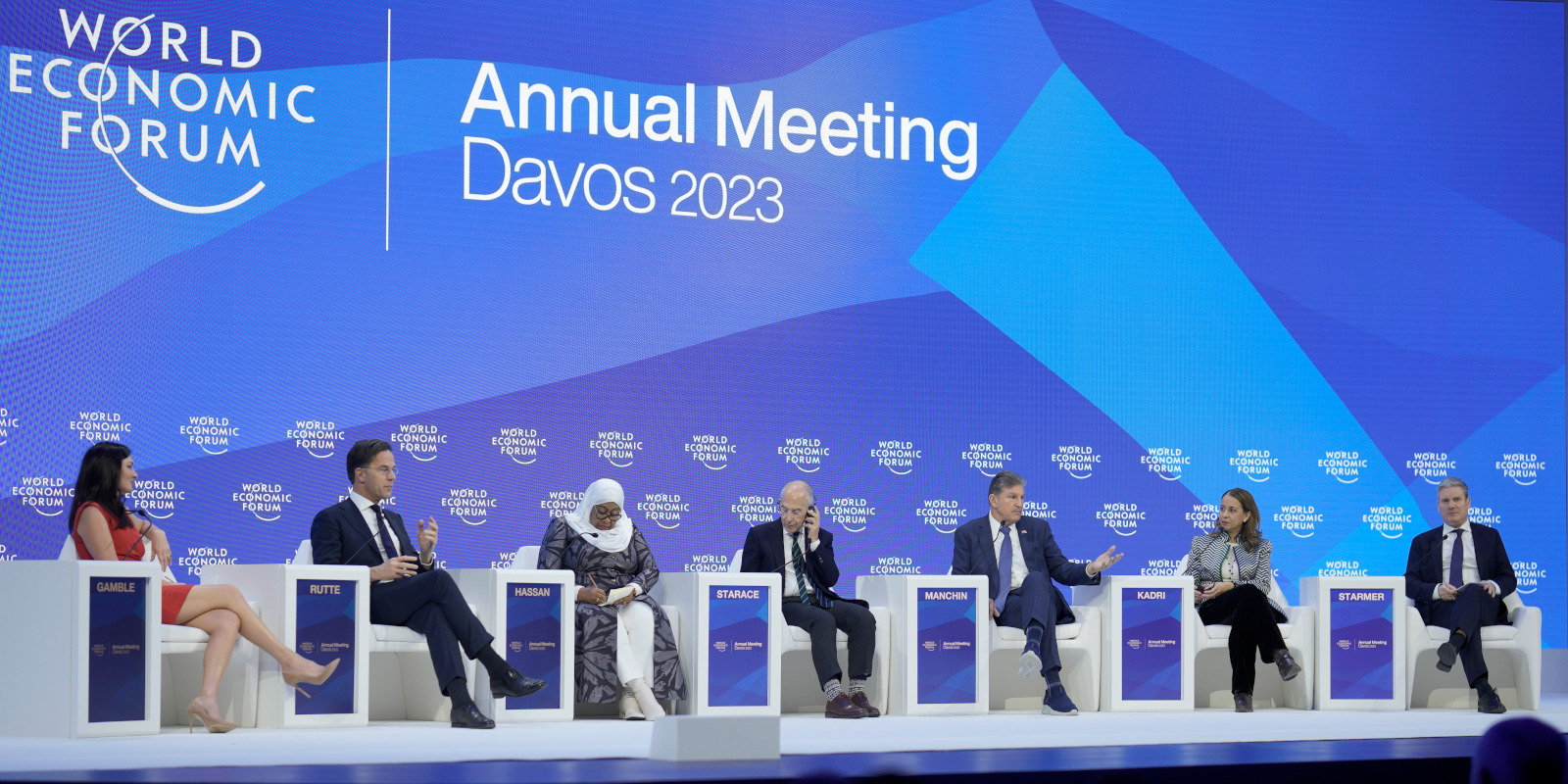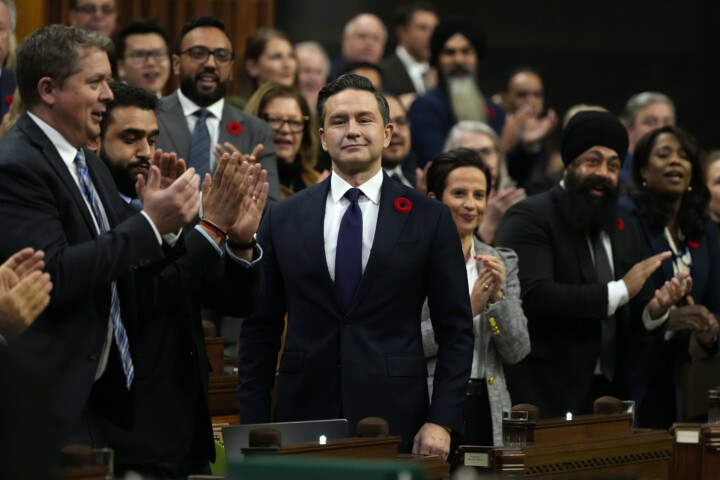Can one be called a shill and wear it proudly? Apparently, if you are a “neoliberal shill”, and especially if you put yourself forward as a contestant in the American-based Center for New Liberalism’s annual “Neoliberal Shill Bracket.”
Like synthpop and shoulder-padded blazers, neoliberalism was a big thing in the 1980s, but has lost its sheen in the following decades to the point where “neoliberal” is used as an insult on the internet.
Toronto-based Hub contributor Steve Lafleur said anybody who is a proponent of market economics has been called a “neoliberal” or a “neoliberal shill” at some point, even if neoliberals believe in other ideals such as globalization. He says that calling himself a “neoliberal shill” is a tongue-in-cheek reappropriation of the word.
“If you’re going to call us that, then great, that’s what we are then,” says Lafleur, who says the ideology of neoliberalism and its evolution into a pejorative label is steeped in early 2000s politics and culture.
CNL Community & Communications Manager Tobin Stone says that in 2018, a Reddit user suggested to CNL co-founder and director Colin Mortimer that he should create an ESPN-style bracket modelled after March Madness. Instead, the CNL created a bracket of 64 neoliberal figures with an online following and began a Twitter competition that was decided via Twitter polls.
“As far as we know, the Neoliberal Shill Bracket was the first real bracket like that to be run on Twitter,” says Stone.
The winner is whomever the Twitter users decide did the most good for the world in the past year.
These winners have included Bastiat the Twitch streamer in 2021 and Cato Institute Fellow (and past Hub Dialogues guest) Scott Lincicome in 2020. Niskanen Center fellow Matt Darling ultimately won the 2023 Neoliberal Shill Bracket.
“It’s a bunch of centre-left people advocating for centre-left pragmatic ideas,” says Stone regarding the CNL, which has dozens of chapters across North America. “Free markets, but also recognizing the need for a strong social safety net because markets sometimes have benders.”
While the CNL identifies itself as centre-left, and is affiliated with the Progressive Policy Institute, the bracket was open to people on the centre-right like Lafleur. As an entrant in the competition, Lafleur made housing a key platform in his campaign to get votes in the Twitter polls.
Housing is one of the top issues discussed by the CNL, and has been since it was created.
“Since the beginning, housing has always been one of those things that we cared about because we believe in free markets and we believe that regulation for housing has gone too far,” says Stone. “We see that a lot in the U.S…it happens in Canada too, where you have these extreme zoning laws, regulations about how large a lot size has to be, how many units you can have on a lot. What a building is supposed to look like, how tall it can be.”
Washington DC-based Shill Bracket entrant Laura Duffy considers neoliberalism to be an ideology aimed at achieving “flourishing” for everyone through economic growth, a strong safety net, and maintaining strong democratic institutions.
During her effort to win the Shill Bracket, Duffy asked her supporters to donate money to the Against Malaria Foundation, a charity based in the United Kingdom. While she was eventually eliminated before the final round, Duffy and her supporters ended up raising over $6,300 for Against Malaria.
Due to vote-buying and the involvement of bots in the Shill Bracket, the contest’s rules were altered in the final round so that the winner was determined by how much more money a candidate could raise for Against Malaria, with Stone crediting Duffy for inspiring the rule change. When Matt Darling eventually won the 2023 bracket, over $34,000 had been raised in total.

Effective altruism was the centrepiece of Duffy’s bid to win the Shill Bracket. Effective altruism is a philosophy that promotes efficient charity, and the CNL picked Against Malaria for what they say is the charity’s effective use of its donations.
It is an often-contentious philosophy due to the backing of public figures like FTX-founder and accused fraudster Sam Bankman-Fried and philosopher Peter Singer, whose views on euthanasia and infanticide are especially controversial.
Duffy says that although neoliberalism and effective altruism are distinct movements, similarities remain.
“Practically, neoliberals and effective altruists are pretty focused on evaluating programs through the lens of cost-effectiveness, and we often think about impact in terms of how much good we can do on the margin,” says Duffy. “Effective altruists, for instance, challenge us to spend more of our charitable dollars in low- and middle-income countries, because that’s where they can do the most good for the most people.”
Duffy says austerity and harmful deregulation have hurt neoliberalism’s appeal, but she believes concepts should be redefined over time.
“Reading zoning regulations, analyzing the distributive effects of carbon taxes, and arguing for economic benefits of immigration? Sounds pretty cool to me,” says Duffy.
Lafleur, who graduated from Wilfrid Laurier University in 2010, says that “neoliberal” was being used as an insult by those on the political Left, even when he was a student.
“Now, it’s different. It’s more people on the Right (that) are starting to become a little bit more skeptical of globalization and trade,” says Lafleur. “Now it’s almost more of a populist thing than a left-wing thing.”
Nonetheless, Lafleur believes neoliberalism remains the baseline of the world economy, even if it has been tested recently in countries like the United States and the United Kingdom. Lafleur says the renegotiation of NAFTA, one of the most high-profile protectionist promises of President Donald Trump, did not result in a monumental change.
“Even if somebody whose whole political identity is premised on being a nationalist-protectionist and they aren’t rolling things back then we’re probably in a stronger position than it seems like we are,” says Lafleur.
Recommended for You
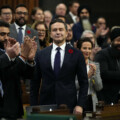
Pierre Poilievre secured a resounding win—here’s why: The Weekly Wrap
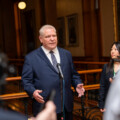
Ontario’s Progressive Conservatives need a wake-up call

Decoding the uncertainty in Canada’s oil patch—and what it means for Carney’s investment ambitions
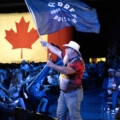
From Jordan Peterson law to bail reform: 9 policy proposals from the Conservative convention that could spur Canada’s comeback

